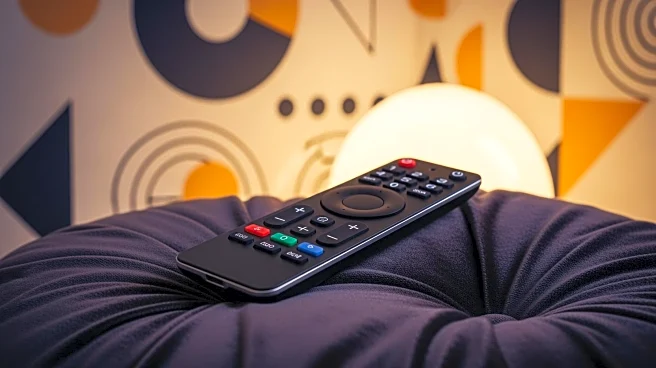What's Happening?
The legal drama 'All's Fair,' created by Ryan Murphy, has become one of the most popular shows on Hulu, despite receiving negative reviews from critics. The show, which debuted last week, follows a group
of female divorce attorneys who leave a male-dominated firm to start their own practice. The series explores themes of high-stakes breakups, scandalous secrets, and shifting allegiances both in the courtroom and within the team. Despite the criticism, which includes comments on the show's portrayal of feminism and the performances of its star-studded cast, 'All's Fair' has achieved significant viewership. According to Deadline, it marked the biggest series premiere for a scripted Hulu original in three years, with over 3 million views globally within three days of its release.
Why It's Important?
The success of 'All's Fair' highlights the complex dynamics of viewer engagement and critical reception in the streaming era. While critics have panned the show, its popularity suggests that audiences may be drawn to its themes and star power, or perhaps are intrigued by the controversy itself. This phenomenon underscores the evolving landscape of entertainment consumption, where streaming platforms can achieve success based on metrics beyond traditional critical acclaim. The show's performance could influence future programming decisions at Hulu and other streaming services, as they balance critical feedback with audience preferences.
What's Next?
As 'All's Fair' continues to attract viewers, it may prompt Hulu to invest in similar content that challenges conventional narratives or features high-profile casts. The show's creators and network may also consider addressing the critiques in future episodes or seasons to broaden its appeal. Additionally, the show's success could lead to discussions about the role of criticism in the streaming age and how it impacts viewer choices.
Beyond the Headlines
The reception of 'All's Fair' raises questions about the portrayal of gender dynamics in media and the expectations placed on shows that tackle feminist themes. The criticism of the show's 'rah-rah girlboss feminism' may spark broader conversations about how feminism is represented in popular culture and the responsibility of creators to depict these themes authentically. This could lead to a reevaluation of how such narratives are crafted and received by diverse audiences.










